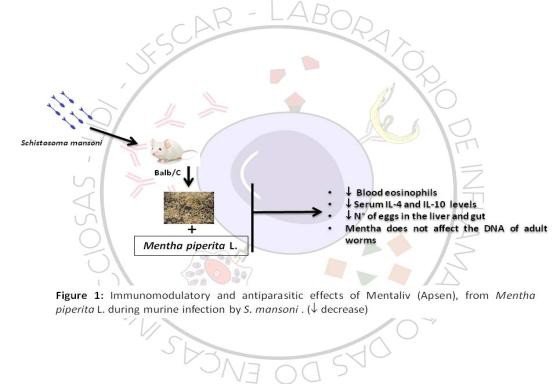
Fernanda de Freitas Anibal
University of São Paulo, Washington USA
Title: Phytotherapy from Mentha piperita L. modulates infection during experimental schistosomiasis
Biography
Biography: Fernanda de Freitas Anibal
Abstract
Schistosomiasis is a chronic parasitic disease promoted by the parasite of the genus Schistosoma, and Praziquantel (PZQ) is the only drug recommended by the World Health Organization, but there are reports of resistance, suggesting the importance of studying new compounds to treat this disease. In this work we investigate the immunomodulatory and antiparasitic effects of Mentaliv (Apsen), from Mentha piperita L. during murine infection by S. mansoni (Sm). Experimental groups: Balb/c females, (I) C, uninfected, (II) SM, infected without treatment, (III) Mentha 15 (50mg/kg) infected with Sm (80 cercariae/animal) (IV) Mentha 60 (50 mg/kg), infected and treated daily for 60 days and (V) PZQ, infected and treated with single dose (400mg/kg) at the 43rd day after infection. The cell profile in the blood and serum IL-4 and IL-10 cytokines were analyzed. And the antiparasitic effect on egg count in the liver, intestine and granulomas, and comet assay for DNA modifications in worms recovered after treatments. Mentaliv phytotherapy has immunomodulatory and antiparasitic effects during murine infection of experimental schistosomiasis, by reducing serum levels of IL-4 and IL-10, and indirectly modulating negatively the blood eosinophils in the Mentha 60 group. In addition, there is an antiparasitic effect in these animals of the Mentha 60 group where there is a reduction in the number of eggs in the liver, intestine and in the hepatic granulomas. However, the absence of the genotoxic effect on Sm, suggests that other structures of the parasite other than DNA are being altered and thus contributing to the reduction of parasitic load. Thus, it is suggested that menthol and menton may be the main components of Mentha piperita L. with antiparasitic effect in this model.


